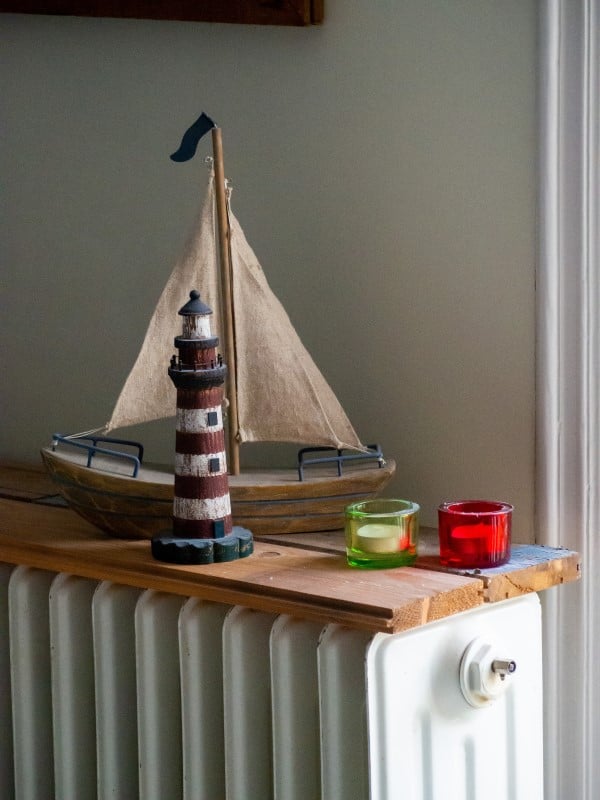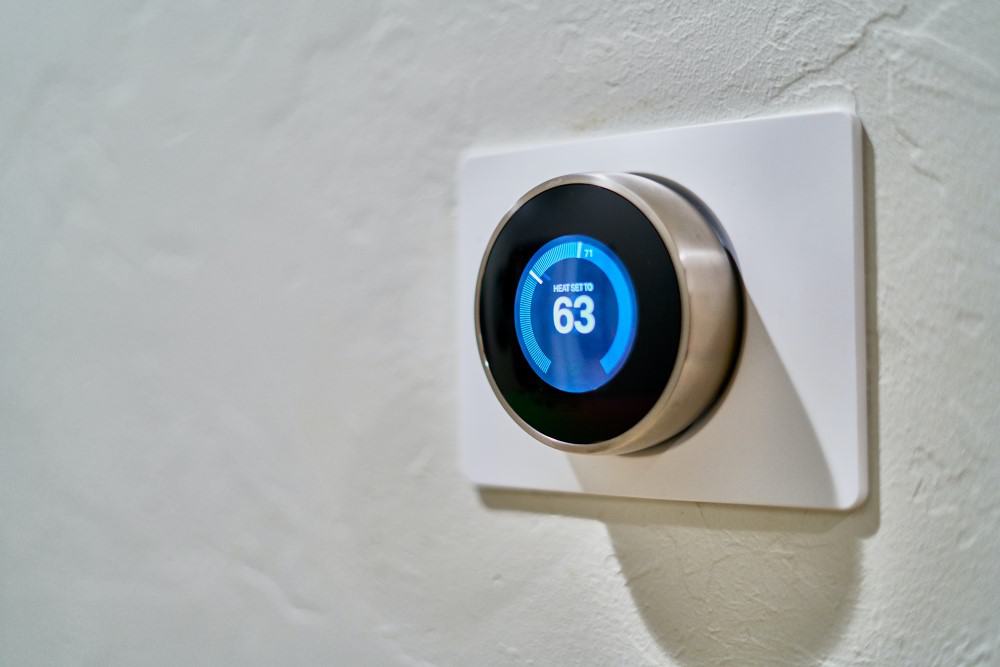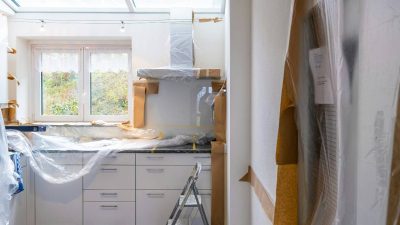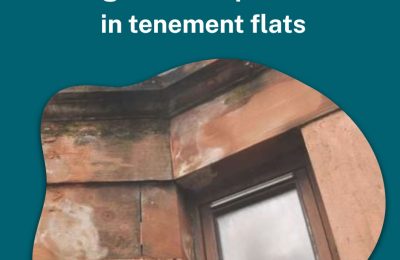As a tenant in Scotland, it’s important to understand your responsibilities when it comes to the repairs and maintenance of your plumbing and heating systems. While landlords are responsible for ensuring that the property is in good repair, there are certain tasks that fall under the tenant’s responsibility. We will outline best practices for dealing with shared repairs, provide timescales for contacting your agents, and offer tips on keeping contractors up to date with any developments between visits. We will also emphasise the importance of letting agents using a Gas Safe registered company that complies with all necessary health and safety guidelines. Additionally, we will discuss the top five plumbing and heating issues, tenants may face as we head into winter, and provide advice on how to get them fixed quickly and efficiently. Finally, we will address the issue of frozen condensate pipes and what to do if your condensate pipe freezes. We will also advise on maintaining correct system water pressure and provide tips on how to top it up.
Dealing with Shared Repairs
When it comes to shared repairs, it’s essential to have clear communication with your fellow tenants and your letting agent. If you notice any plumbing or heating issues that affect the entire property, such as a leaking pipe or a faulty central heating system, it’s important to report it as soon as possible. By promptly informing your letting agent, they can take the necessary steps to address the problem.
Furthermore, keeping your letting agent informed of any developments between visits is crucial. If you notice any changes or issues after a contractor has visited, such as recurring leaks, make sure to notify your letting agent. This will help them assess the situation and take appropriate action to resolve the problem. Top Tip: It also helps to take videos and keep a diary if the issue is ongoing!
Remember, shared repairs require cooperation and communication. By promptly reporting issues and keeping your letting agent (and contractor if possible) in the loop, you can ensure that repairs are carried out efficiently and effectively.
Timescales for Contacting Your Agents
When it comes to repairs and maintenance, it’s important to act fast. If you notice any plumbing or heating issues in your rental property, you should contact your letting agent as soon as possible. They will be able to advise you on the best course of action and arrange for a qualified contractor to visit the property. Most agencies have a tiered priority system, so make sure the information is clear and concise, so as not to delay any work.
While there is no fixed timescale for contacting your letting agent, it’s generally recommended to report any issues within 24 to 48 hours. This allows your letting agent to assess the urgency of the problem and prioritise repairs accordingly. However, if you have an emergency, such as a burst pipe or a complete loss of heating, it’s important to contact your letting agent immediately. All good letting agents have an out of hours contractor so don’t be tempted to wait till they open the next day, should your emergency happen through the night.
By contacting your letting agent promptly, you can ensure that repairs are carried out in a timely manner and minimise any inconvenience or damage caused by plumbing or heating issues.
Importance of Letting Agents Using a Gas Safe Registered Company
Gas appliances and central heating systems can not only be a pain if they break down but can also be extremely dangerous if not properly maintained and checked by qualified engineers; it’s vital to ensure that the contractor hired by your letting agent is Gas Safe registered. The Gas Safe Register is the regulatory body and official list of qualified gas engineers who are legally allowed to work on gas appliances and installations.
Using a Gas Safe registered company ensures that the contractor working on your plumbing and heating systems has the necessary expertise and knowledge to carry out the repairs safely and effectively. It also guarantees that they comply with all health and safety guidelines, reducing the risk of accidents or further damage to the property.
Before any repairs or maintenance work is carried out, make sure to ask your letting agent if the contractor they are sending is Gas Safe registered. This will give you peace of mind knowing that the work is being done by a qualified professional who prioritises your safety. All registered gas engineers are required to carry their Gas Safe ID card whilst working with gas, so you can also ask to see this when they arrive. You can also check if a company is Gas Safe Registered on their website. Gas Safe Register – The Official List of Gas Safe Registered Businesses – Gas Safe Register has replaced CORGI registration. Don’t cut corners, only use a Gas Safe registered engineer.
Top 5 Plumbing and Heating Issues as We Head into Winter
As winter approaches, it’s important to be aware of the common plumbing and heating issues that tenants may face. By knowing what to look out for, you can take proactive measures to prevent or address these problems quickly. Here are the top five issues:
- Frozen Pipes
One of the most common issues during winter is frozen pipes. When water freezes inside the pipes, it can cause them to burst, leading to leaks and water damage. To prevent frozen pipes, make sure to have your letting agent instruct a contractor to insulate any exposed pipes. Keep your heating on low for longer periods (even when out) when the temperature drops. If you suspect a frozen pipe, contact your letting agent immediately.
- Low Water Pressure
If you are experiencing low water pressure on your boiler, you’re likely to have no heating or hot water, or a fault code will flash asking you to top it up. This can be an easy task if you know how. We’ll go into this in more detail in the next section. If in any doubt, you should contact your letting agent who can advise on how to do this, or instruct a contractor to come and do this for you. It’s worth noting that persistent low system pressure is usually as a result of an underlying issue with the boiler. In this case the only thing to do would be to contact your agency.
- Leaking Taps or Pipes
Leaking taps or pipes can waste water and cause damage to your property. It’s worthwhile contacting your agency to see if they know the location of any water shut off valves for the property, as knowing this in an emergency situation can make a huge difference. If you notice any leaks, report them to your letting agent as soon as possible. They will arrange for a plumber to fix the issue promptly.
- Radiator Problems
 If your radiators are not heating up properly or are making unusual noises, it could indicate a problem. Bleeding your radiators can often resolve these issues. There are hundreds of videos online showing you how to do this with a whole host of gadgets for the job. The rule of thumb is, if your radiators are hot at the bottom but cold at the top, this usually means they need bled. This problem is most common in both towel radiators and vertical radiators as they have high points within the heating system. If in any doubt or if the problem persists, contact your letting agent for assistance.
If your radiators are not heating up properly or are making unusual noises, it could indicate a problem. Bleeding your radiators can often resolve these issues. There are hundreds of videos online showing you how to do this with a whole host of gadgets for the job. The rule of thumb is, if your radiators are hot at the bottom but cold at the top, this usually means they need bled. This problem is most common in both towel radiators and vertical radiators as they have high points within the heating system. If in any doubt or if the problem persists, contact your letting agent for assistance.
- Boiler Breakdowns
A faulty boiler can leave you without heating or hot water, which is especially challenging during winter. To avoid boiler breakdowns, make sure to have your boiler serviced annually by a qualified engineer. Keep an eye on the boiler during peak times and listen out for any strange noises or fault codes (if your boiler has a display). If your boiler stops working, contact your letting agent and avoid attempting any repairs yourself. It is a criminal offence to remove the case of a boiler unless you are a Gas Safe registered engineer.
Frozen Condensate Pipes
Frozen condensate pipes can cause your boiler to shut down, leaving you without heating or hot water. If your condensate pipe freezes, it’s important not to attempt to thaw it yourself using boiling water or heat sources as this can cause the pipe burst, causing more problems. Instead, use warm water on the pipe only if it is safe to do so. If this fails, contact your letting agent immediately and seek their guidance on how to resolve the issue safely.
Your letting agent will arrange for a qualified engineer to thaw the pipe and ensure that your boiler is functioning correctly. They may also provide advice on preventing future freeze-ups, such as insulating the pipe or relocating it to a more sheltered area. The regulations on external condensate pipes state that Grade O weatherproof insulation must be used to reduce the risk of this happening. If you’re pipe isn’t insulated, contact your agency to let them know.
Correct System Water Pressure and Topping Up
It’s important to maintain the correct system water pressure in your heating system to ensure it operates efficiently. The recommended pressure range is typically between 1 and 1.5 bar. If your pressure falls below this range, you may need to top it up.
To top up the system water pressure, locate the filling loop or filling valve on your boiler. Open the valves gradually until the pressure reaches the recommended range. If you are unsure how to top up the pressure, contact your letting agent for guidance.
By understanding your responsibilities for repairs and maintenance, following best practices for dealing with shared repairs, and promptly reporting any issues to your letting agent, you can ensure that your plumbing and heating systems are well-maintained throughout your tenancy. Remember, a safe and comfortable home starts with proper care and attention to your property’s plumbing and heating systems.












